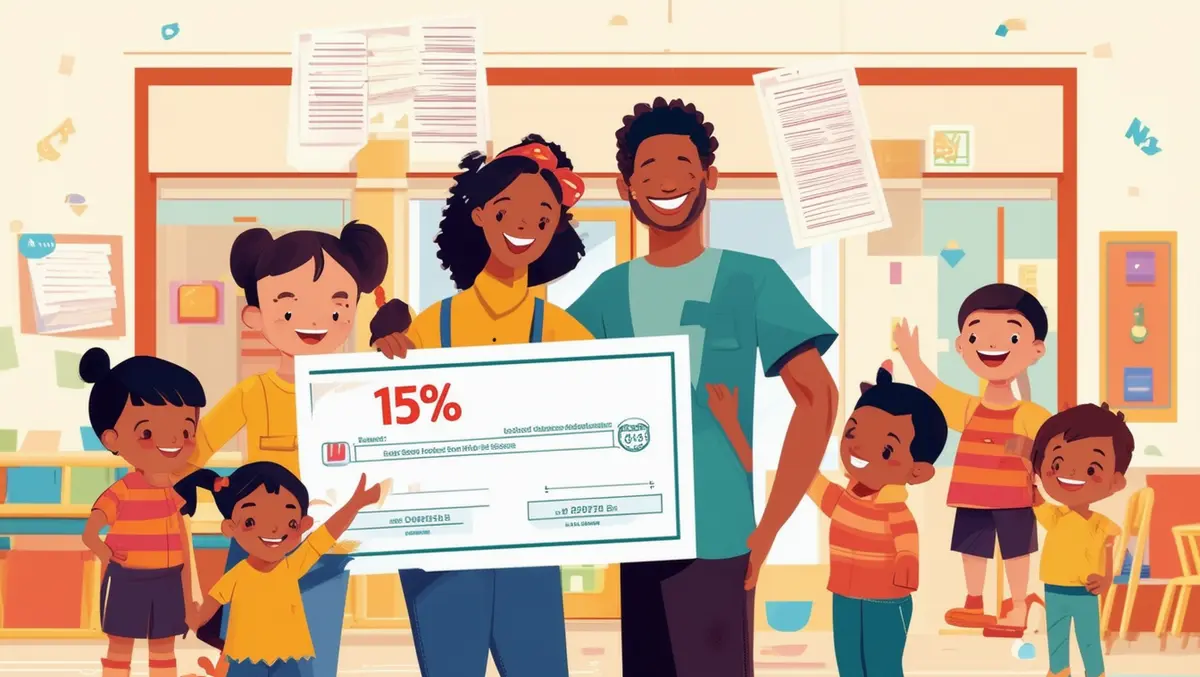
Government's 15% pay rise for ECE staff misses core issues
The Federal Government has recently announced a 15% pay rise for Early Childhood Education (ECE) workers. This move aims to address the wage inequalities employees face in a demanding industry. However, several stakeholders, including the creators of the AI-based tool LoveHeart, argue that the pay increase alone will not solve the deeper issues contributing to high staff turnover rates in the sector.
According to the Australian Children's Education and Quality Care body, about 30% of educators leave the ECE sector annually due to the intensifying workloads. The burden of paperwork and administrative tasks is cited as a significant factor, with individual educators spending more than 20% of their time on administrative duties. This percentage rises with increased seniority. Unions have long suggested that this paperwork burden plays a considerable role in staff attrition.
Himal Randeniya, Co-Founder and CEO of LoveHeart, believes that while the government's promised pay rise is a step towards addressing wage inequality, it does not tackle the core issues pushing ECE employees to their limits. "Piles of paperwork and reporting are chewing up ECE practitioners' work and personal time – data shows that educators and teachers spend over 20% of their time on admin duties – rather than fulfilling the meaningful work that prompted their passion to work with children," he said.
Randeniya argues that artificial intelligence is key to resolving this issue. LoveHeart is an AI-based teacher's aid designed to reduce the documentary burden on educators, saving them an average of 4.2 hours per week. The tool uses the educators' observations to help understand a child's development, allowing for detailed analyses of a child's learning much faster than traditional methods.
"Research has shown us just how imperative early childhood education is in shifting the trajectory of young people's lives, yet we're still faced with significant sector-wide challenges," Randeniya noted. "Educational quality is diminishing due to high staff turnover, with almost a third of educators leaving the sector annually – and regulatory red tape only exacerbates the issue."
LoveHeart has been developed to address multiple aspects of ECE educators' administrative challenges. The AI tool also ensures ethical use through a custom AI called Sentinel, which monitors user behaviour to prevent the creation and distribution of fabricated or mass-produced documentation. This is particularly important in maintaining compliance with regulatory standards.
Paul Mondo, President of Childcare Alliance and a LoveHeart user, highlighted the benefits his team experienced during a three-month platform trial. "Our educators highlighted several key features that stood out to them. In particular, they enjoyed using the online coaching tool, which provided genuinely insightful ideas for planning engaging activities that align with their educational program and their observations of the children," Mondo said.
Additionally, the translation feature has made it easier for educators to communicate with parents in their home languages, facilitating better relationships and enhanced communication with families.
Mondo also remarked on the tool's potential to support educators' passion for their work: "The vast majority of educators choose this field due to their passion for educating children, and would welcome a practical tool that streamlines their work when writing observations and developing educational programming. We found that LoveHeart greatly assists our educators to meet their documentation requirements, while building their professional knowledge and skillsets."
Integrating AI tools like LoveHeart into the early childhood education sector underscores a growing recognition of the need to modernise and support educators' roles. As the sector grapples with high turnover rates and increasing administrative burdens, stakeholders advocate for comprehensive solutions beyond financial incentives to create sustainable and impactful change.


